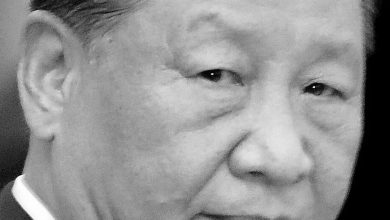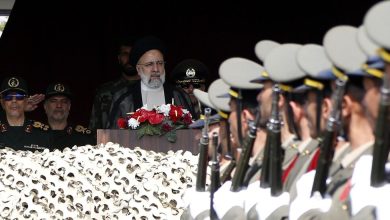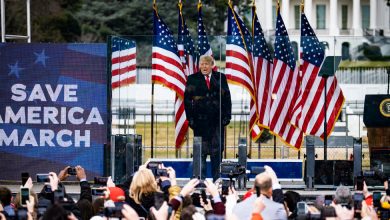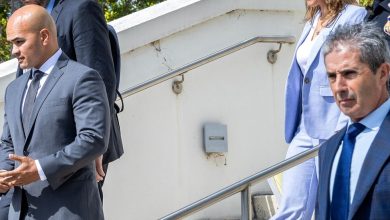In L.A. District Attorney Race, Rhetoric Shifts From Reform to Fear
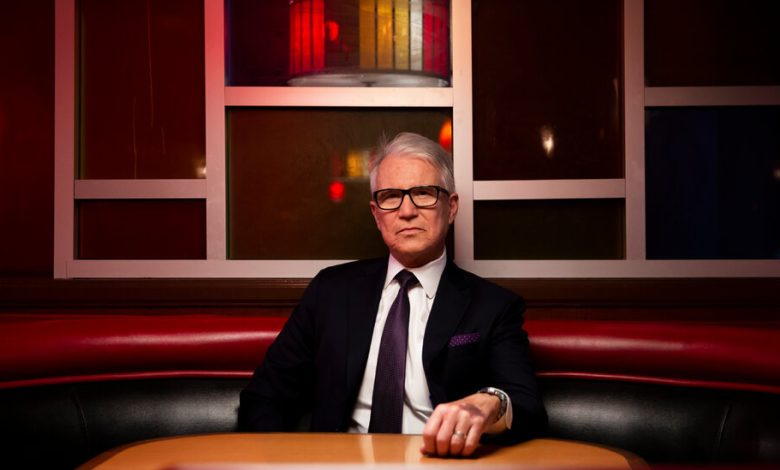
Three years ago, George Gascón rode a wave of collective outrage following the murder of George Floyd in Minneapolis to become district attorney of Los Angeles by promising to make the criminal justice system fairer and, most crucially, to rein in the police.
Now, to win re-election and stay in office, Mr. Gascón will need to tap into a different type of emotion: fear — in particular a perception that Los Angeles is less safe and that his policies as district attorney have made it so, an argument advanced by many of his challengers but largely unsupported by data.
“I think that this race now for 2024 has gone back to, for a lot of people, law and order, lock ’em up,” Mr. Gascón said in an interview.
Mr. Gascón’s victory in 2020 was one of the most consequential electoral outcomes from the movement for social justice and police accountability galvanized by Mr. Floyd’s murder by a Minneapolis police officer. And for the national movement that in recent years has helped elect progressive prosecutors in jurisdictions across the country, the victory in Los Angeles was momentous: The county, roughly the size of Ohio, has the nation’s largest prosecution office, the largest jail system and a long history of police abuses.
But Mr. Gascón, 69, is running for re-election in a very different political climate. Demands for equity and accountability in policing and prosecution have been overtaken by concerns about what to do about crime — the question that has dominated the district’s attorney’s race in Los Angeles.
The 11 candidates challenging Mr. Gascón include judges, attorneys in his own office and former federal prosecutors, nearly all to varying degrees running to the right of Mr. Gascón.
“Yes, crime is up,” Jonathan McKinney, a prosecutor in Mr. Gascón’s office who is among the challengers, told the crowd at a debate this fall hosted by the Santa Monica Democratic Club. “That’s why you’re all here tonight.”
The first round of the election is in March, and if no candidate receives more than 50 percent of the vote — unlikely given the low numbers each candidate is currently polling at — the top two candidates will face each other in November.
Even as Mr. Gascón’s opponents paint a picture of out-of-control crime, the data indicates that Los Angeles, like much of the country, is becoming safer in crucial categories of violent crime, such as murder, as the social and economic disruptions of pandemic recede. In the city of Los Angeles, which accounts for about 40 percent of the population of Los Angeles County, most violent crimes are down substantially compared to 2021, Mr. Gascón’s first year in office.
Murder, often a proxy for people’s wider views on crime, is down about 18 percent, while rape is down close to 19 percent. But property crimes, including burglary and car theft, have risen, the only crime tracked by the F.B.I. that has gone up in 2023.
Back in 2020, progressives like Mr. Gascón often tried to use data to persuade voters concerned about crime that their feelings didn’t always match reality.
This time, he is taking a different approach.
“We can talk to people about data, and that doesn’t really resonate,” he said. “So I gave up on talking about data. I’ll throw it in there to sprinkle, but I immediately try to connect with people on a human level. Acknowledging their feelings, because their feelings are real.”
Mr. Gascón is facing opposition not only from candidates to the right of him, accusing him of making Los Angeles less safe and failing to take a tough stance on crime, but also from liberal-minded voters who are either worried about crime or have become disenchanted by his policies.
Growing up in Los Angeles, Mauricio Caamal says he was routinely harassed by the police. He was also a victim of crime when he was 4 years old, and his father was robbed and murdered in downtown L.A.
When 2020 came around, and the nation convulsed with protests over the murder of Mr. Floyd, Mr. Caamal was drawn to the streets over a police killing closer to home: A sheriff’s deputy in Los Angeles shot Andres Guardado, an 18-year-old security guard, five times in the back, killing him. Mr. Caamal, 32, embraced the calls to defund the police, and supported Mr. Gascón.
Mr. Gascón first rose to prominence as an assistant police chief in Los Angeles in the mid-2000s. More than a decade later, after serving as the police chief in San Francisco and then winning two terms as that city’s district attorney, he returned to Los Angeles to run for district attorney there.
In office, Mr. Gascón has pursued dozens of cases against police officers, a rarity under his predecessor. But earlier this year, after a long investigation, he declined to bring charges against the deputy in Mr. Guardado’s case, determining there was “insufficient evidence” to support charges.
“I think that, on its own, should be enough for me not to vote for him again,” Mr. Caamal said.
Mr. Gascón beat back an early effort to recall him from office, which was supported by some prosecutors who work for him, after his opponents failed to secure enough signatures to force a new election. That allowed him to avoid the fate of his counterpart in San Francisco, Chesa Boudin, who was recalled last year amid an acrimonious debate in that city about property crimes and visible squalor in the streets.
To win another term, Mr. Gascón says he must hone his message to connect reforms with public safety by arguing, for instance, that second chances and more lenient sentences reduce recidivism and improve safety over the long haul.
“You cannot really have sustainable public safety if you don’t address the inequities in the system,” he said. He added, “So it’s a much more nuanced campaign in the sense that we have to, even to get to the same place, we have to go through a process of explaining a lot more” the connection between reform and public safety.
“I feel less safe since he’s been there,” said Karim Bailey, 42, a middle-school teacher in South Los Angeles whose classroom discussions often center on neighborhood crime and policing. He has had his car’s catalytic converter stolen twice.
Mr. Bailey said he couldn’t recall which candidate he voted for in 2020 but that he would not be supporting Mr. Gascón this time.
“A lot of the cases that I’ve seen that have involved him, it just seems like he puts the interest of the criminal over the interest of the general public,” he said.
In 2020, Maria-Isabel Rutledge knocked on doors for Mr. Gascón’s campaign. She is supporting him again this time around, arguing that he needs more time to carry out reforms she believes are necessary to make the system fairer.
Ms. Rutledge, 70, is a retired teacher’s assistant and lives in South Central Los Angeles, the epicenter of the uprising in 1992 after the acquittal of several police officers in the beating of Rodney King.
“I know that, if he continues in the same trajectory, that he’s going, hopefully, to be able to make change,” she said of Mr. Gascón. “It’s difficult and challenging to reform the dated institutionally racist system,” she said. “The system of racism is very, very embedded in the United States, but we have to keep going in the right direction, we have to keep chipping at it a little bit at a time.”

